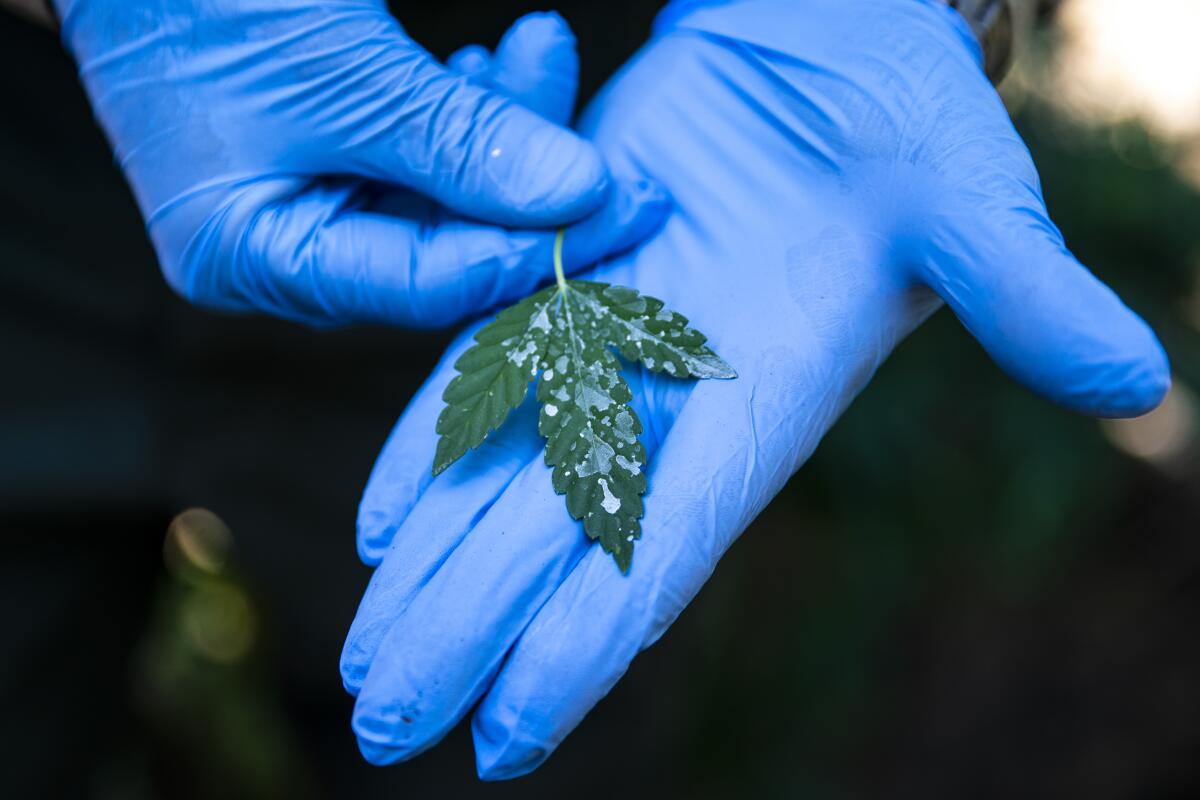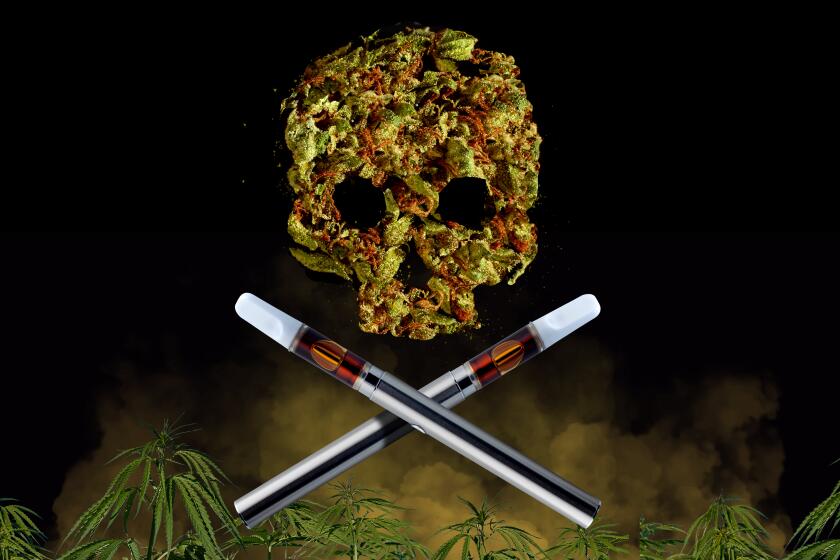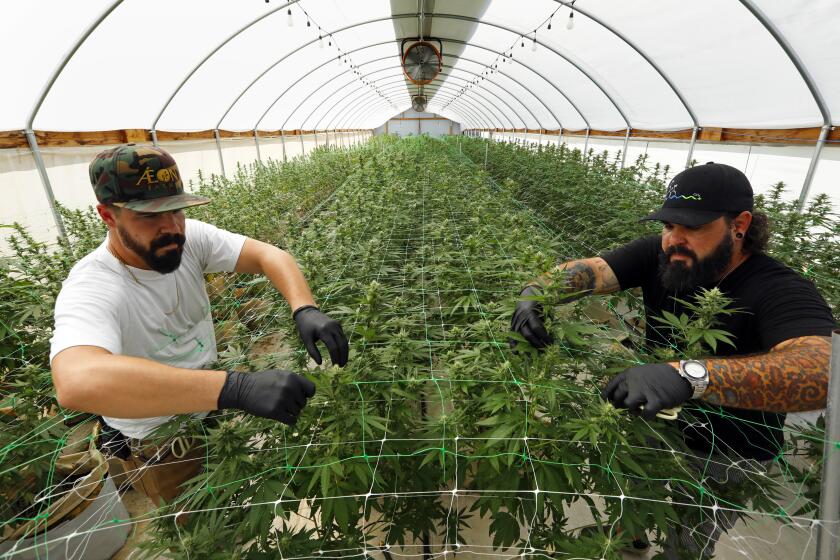California’s cannabis regulator is failing the legal marijuana market

- Share via
In a state where the illegal marijuana market is still much larger than the legal one, the biggest selling point for consumers is that pricier legal cannabis products are tested, regulated and safe.
But a recent investigation by The Times and WeedWeek found that this is not necessarily true.
More than half the legal cannabis products purchased from retail stores as part of the project and tested at private labs showed concentrations of pesticides either above levels the state allows or at levels that exceed federal standards for tobacco. (There are no federal standards for cannabis; it remains illegal under federal law.) The tests found chemicals tied to cancer, liver failure, thyroid disease and genetic and neurological harm to users and their unborn children.
A Los Angeles Times investigation, in conjunction with WeedWeek, finds alarming levels of pesticides in cannabis products at dispensaries across the state.
Some vapes tested had pesticide levels high enough that users could be harmed from a single exposure, potentially causing lung, eye and throat irritation and rash, headache, diarrhea and abdominal pain.
This is not what Californians were promised when they voted to legalize the sale of recreational marijuana in 2016. The state’s marijuana regulator, the Department of Cannabis Control, is failing consumers and the legal market by allowing contaminated weed to be certified and sold as safe.
The Times’ investigation has sent shock waves through the marijuana industry, in part because the revelations undermine public confidence in the already struggling legal market. And the news has only increased complaints that the Department of Cannabis Control has been too lax in overseeing legal cannabis testing and too slow to respond when presented with evidence of contamination.
The federal government’s plan to reclassify marijuana as a Schedule III drug will allow important medical research into how cannabis can help or hurt users.
Besides the health risk to users, the lack of stringent enforcement creates an unfair playing field. Businesses that follow the rules, demand accurate tests and throw out tainted products are at a disadvantage to those that don’t.
This has been a concern among cannabis testing labs. The state’s regulatory system relies on private labs paid by cannabis producers to test and certify their products. Industry groups say bad actors are failing to report contaminated products — and the lack of stringent oversight by the state has allowed them to get away with it.
Letting weed dispensaries sell food would be a long-overdue concession to business owners and would even help to get people socializing again.
One cannabis testing lab, frustrated by the state’s failure to act, began testing cannabis products for pesticides. The lab co-founder sent 77 complaints to the Department of Cannabis Control about contaminated products from October to May, The Times reported. After receiving the complaints, it took 41 days for the department to issue the first-ever pesticide-linked recall. In a recall, the products are removed from the shelves and consumer advisories are sent out to warn people who may have purchased them.
Cannabis Control director Nicole Elliott said in a statement sent to The Times’ editorial board that her agency, which was established in 2021, has been scaling up its testing, oversight and enforcement.
The department ramped up product recalls for contamination and other reasons, with 28 recalls issued so far this year, compared with eight recalls in 2022 and 2023. However some recalls came months after labs flagged the contamination complaints to the state and after the products were sold to customers.
Editorial: Reclassifying marijuana is not decriminalization, but is a welcome step in that direction
Taking cannabis out of the most-dangerous-drug category is almost literally the least the federal government can do on the subject. Further work is needed to catch up with Americans’ knowledge and practice.
And in the last year, the department has fined, suspended and/or revoked 13 laboratory licenses and launched numerous lab investigations that could result in additional enforcement actions soon.
That’s an improvement, but California has to step it up. Yes, the state should be doing more to shut down illegal marijuana operations that aren’t attempting to follow the law. But Californians expect more when they purchase legal pot. The Department of Cannabis Control should be more aggressive in randomly testing products on store shelves and penalizing growers and manufacturers that are responsible for contaminated products. Labs too should be inspected and audited with more frequency. That may mean the agency needs more funding and direction from the Legislature and Gov. Gavin Newsom.
Consumers should be able to trust that legal pot products are actually tested and safe.
More to Read
A cure for the common opinion
Get thought-provoking perspectives with our weekly newsletter.
You may occasionally receive promotional content from the Los Angeles Times.










